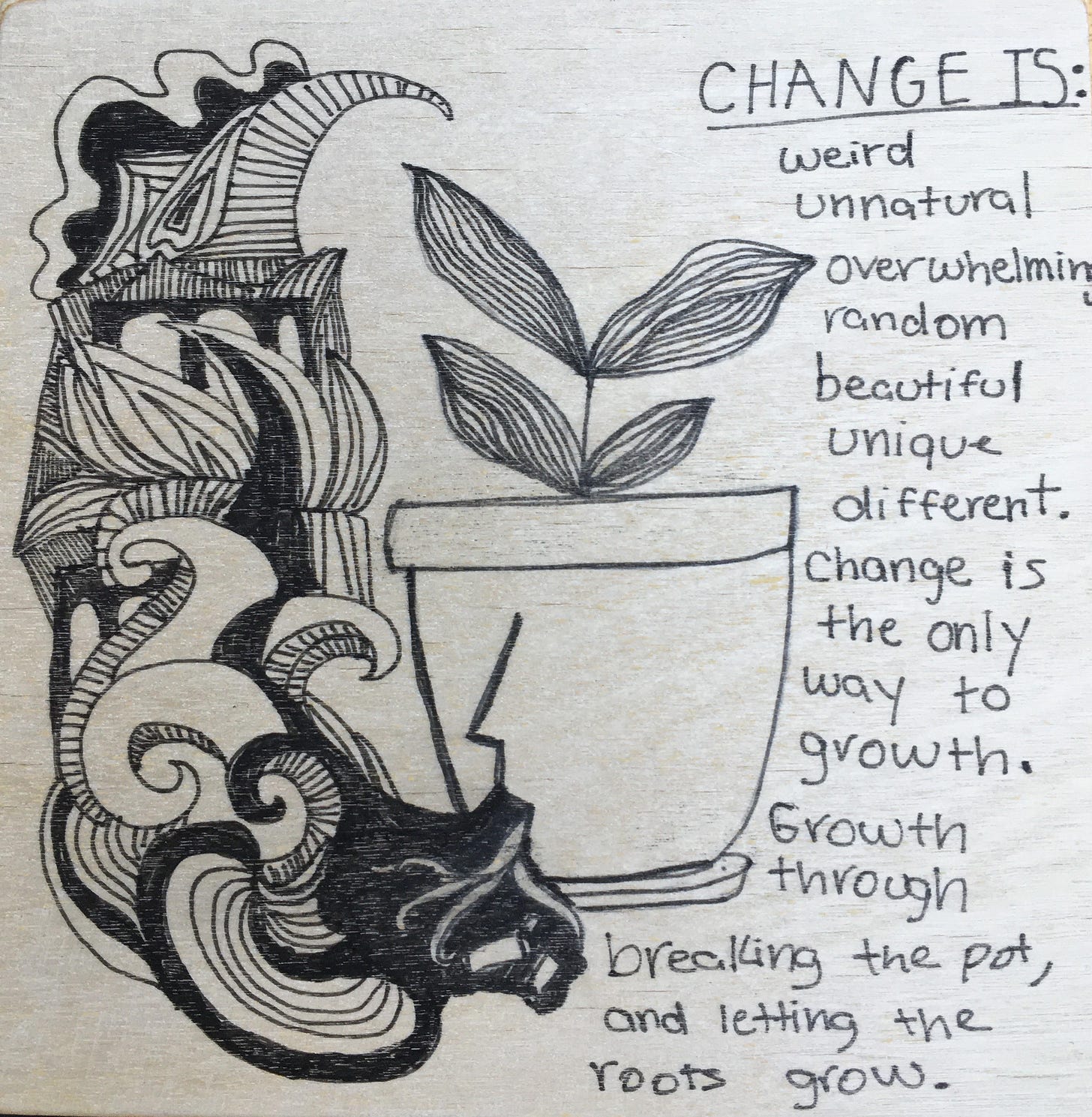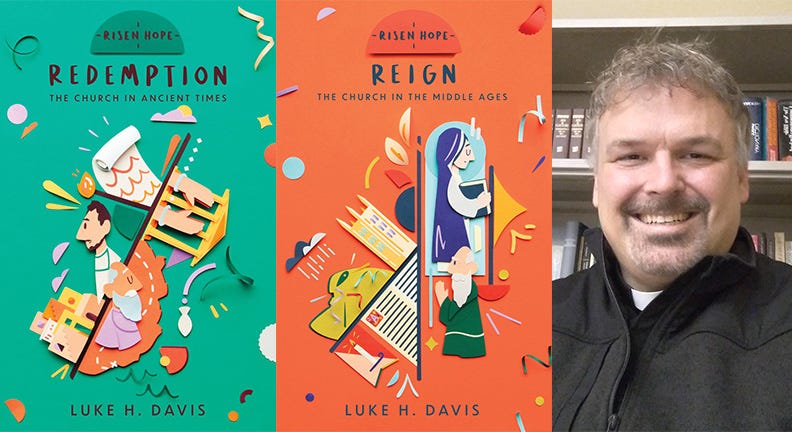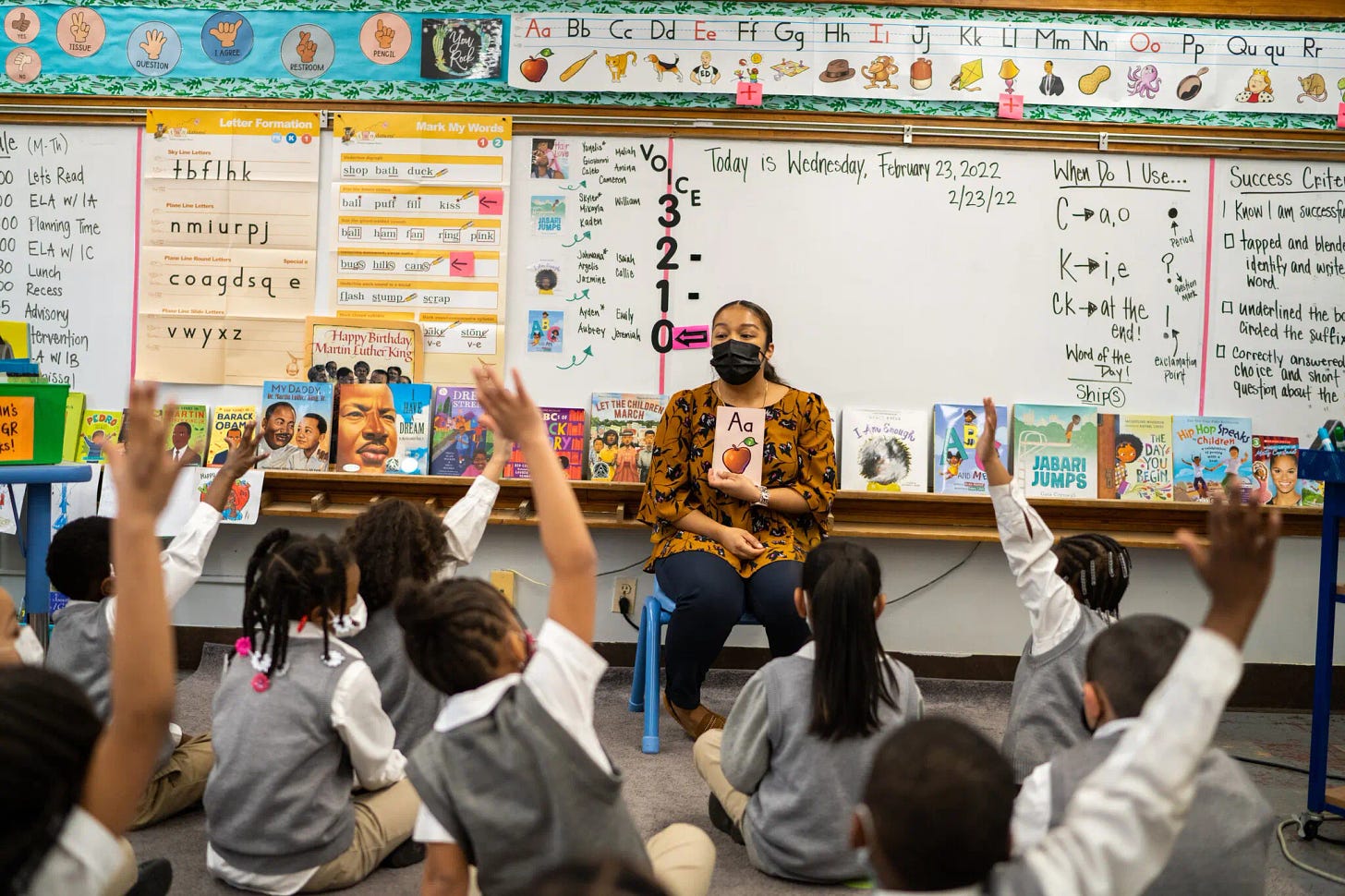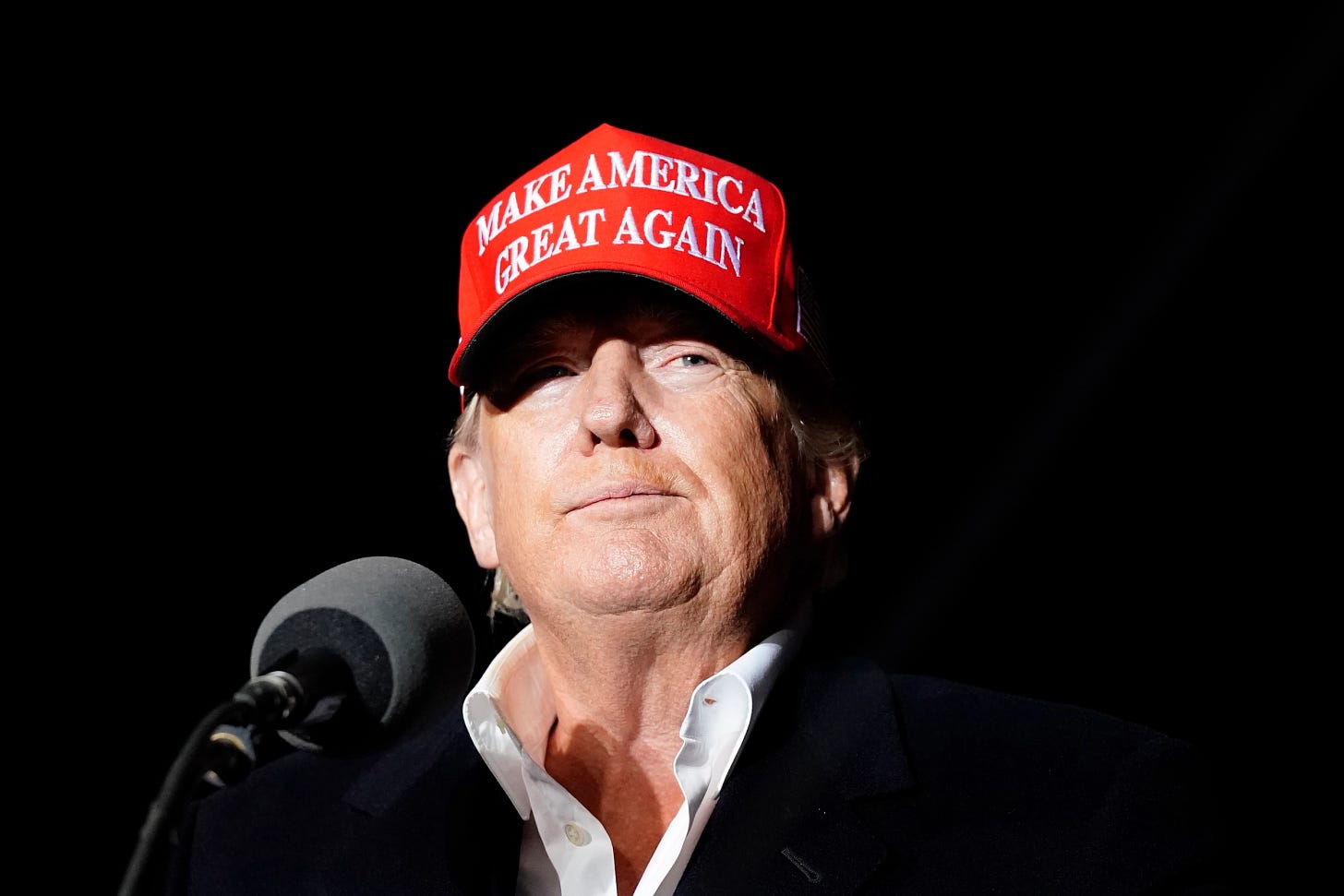Dear Reader,
Now that we’re almost to mid-March, there’s more than just the weather that feels like change is coming. We’ve done the whole Montana winter-to-spring-to-winter-to-spring (rinse and repeat) before, so that’s not a big deal. But change feels in the air on a variety of fronts (none of which are weather-related) for the Dunhams, and some may be hard to process.
Since blogging is cheaper than therapy…
In May, our oldest will graduate from college; in June, our youngest will graduate from high school. Because of various opportunities, there’s a real chance that one or more of our girls may not be in Bozeman (or Montana) come this fall. We recognize we’ve had a good (and very unusual) run in having all four daughters with us in the same town all these years, but that streak just makes it harder to reconcile the possibility that it may be coming to an end.
With no daughter at her school next year, Megan is evaluating her options as well; she wants to continue teaching, but it will be different with no progeny under the same roof. From the beginning, the whole reason Megan stayed home and I eventually went the education route was to be as close as possible to our girls and their learning. At the end of this school year, that 23-year season comes to an end.
What else? The pandemic seems to be winding down (have we reached endemic stage yet?), so that’s a season I’m happy to see start to wrap up. Also, after nine months, I’ve finished my friend’s memoir, and I’m sure it will just be a matter of time before Hollywood is calling about screenplay rights. Orpheus Ascending—my hardly-anticipated return to the theatrical stage—comes to a close in two weeks, and it’s been as fun as it has been humbling.
I’ve been full-time at Montana Instruments almost two years, but like Megan in her role, I’m wondering what the future holds for mine. Stay at MI? Find something different? Pros? Cons?
In the meantime, we keep our noses to the grindstone (painfully sometimes) and seek to be faithful. We ache for those in Ukraine and lament the forced changes they are suffering. We know others near and far who are struggling with their own versions of change and our hearts go out to them. We pray God will watch over what changes may come—to the world, to our family—and we look ahead with hope, even as we ready ourselves for inevitable heartache.
Thankfully, Peaches models a right perspective for us these days:
“Look to the LORD and his strength; seek his face always.” 1 Chronicles 16:11
Sorry for the March melancholy. Here’s to warmer days and a brighter outlook. Hug your kids.
As always, thanks for reading.
Craig
P.S.: After I had written the above (and without showing it to her), Katie showed me a quick rough draft she had thrown together for a project in one of her art classes. I about fell over when she told me what the assignment was to illustrate and explain.
Programming Note for All Subscribers
I’m making tomorrow’s Second Drafts podcast available to all subscribers, free of charge. Peaches and I sit down via the Internet and interview my friend and former St. Louis teaching colleague, Luke Davis, about the first two books in his new series, Risen Hope, which just came out this week from Christian Focus Publications. Luke and I discuss the importance of church history and the need to do a better job equipping students (and ourselves) in its study.
For those who have yet to subscribe, this is your chance to find out what you’re missing, for free! Otherwise, just $5/month gets you full access to past and future podcasts, book reviews, and everything else on the site. Decide it’s not worth it? Cancel anytime, no questions asked.
Hot Takes
For the sake of space, just one Hot Take this week, but it’s an important one.
“It’s ‘Alarming’: Children Are Severely Behind in Reading” - I’m not really sure what people thought was going to happen to student reading post-pandemic, but any 1st grade teacher worth her salt could have offered a hint. The bad news:
“As the pandemic enters its third year, a cluster of new studies now show that about a third of children in the youngest grades are missing reading benchmarks, up significantly from before the pandemic.”
What’s sad, according to the article, is that it’s not just the pandemic that has slowed students learning how to read; it’s because our public school systems have insisted on teachers teaching “whole language” rather than good old phonics for decades.
“The literacy crisis did not start with the pandemic. In 2019, results on national and international exams showed stagnant or declining American performance in reading, and widening gaps between high and low performers. The causes are multifaceted, but many experts point to a shortage of educators trained in phonics and phonemic awareness — the foundational skills of linking the sounds of spoken English to the letters that appear on the page. The pandemic has compounded those issues.”
Somehow, though, we’re still not understanding the realities of the situation:
“Some parents and educators have argued that masks are partially responsible for language and literacy deficits. But researchers say that unlike the well-documented connection between school closures and decreased achievement, there is not yet strong evidence that masking has hindered the development of reading skills.”
I know a certain 1st grade teacher who finds this absolutely ridiculous. If we want kids learning to read, get them out of masks and teach them phonics.
From the Inbox

I always enjoy hearing from readers and occasionally dedicate an issue of Second Drafts to your feedback. The following letters are reproduced in full, with a few thoughts of my own in response after each. Comments are turned off, but you’re always welcome to email me.
Former President Trump
In last week’s newsletter, a reader suggested I didn’t seem to like Trump, insisting that,
“…sometimes you need a little ‘crazy’ to help keep the peace you search for in this world.”
I responded, writing back (among other things) that,
“My observation from last week’s newsletter that ‘Putin respected him (Trump) because crazy recognized crazy’ was meant to be descriptive, not prescriptive; ‘crazy’ is not a personal virtue or leadership characteristic to aspire to for any leader, and to suggest that maybe ‘crazy’ is what we need more of is more pragmatic than wise when it comes to leadership on the world stage and with nuclear weapons (among other things) involved.”
In response, here’s what a different reader offered to add to the discussion:
“I agree w/ you that ‘crazy’ is not a good descriptive that will cause the rest of the world to respect one of our presidents. However, that writer was correct in saying that because Trump was not a run-of-the-mill politician, the world took note, and acted accordingly.
Our presidential election is not for a high school Senior Class President popularity contest! Trump may lack social skills we like, but we didn’t elect him for these! We elected someone who would run our country like the business it is in a global economy of other countries—a skill at which he was very adept. I do not have to like a politician; I need to be convinced he/she will govern America in a way that keeps us secure and free—not popular!
As a country we have gone off the rails over diversity, equality, race, social skills, etc. We should be electing leaders, not the most popular person in the class!”
And here’s a note from another reader who took the time to share his perspective:
“I'll be honest: Unfortunately, I usually don't take the time to read these weekly emails (I sometimes peruse though!), but I'm very glad you're doing them: I'm absolutely certain people benefit from them.
So just a small thought re: former President Trump, that I'll form as a question: does a biblical view of humanity allow us to see Trump as this radical outlier of humanity, as someone who's just ‘crazy’?
The obvious response to this might be, ‘Well, look at guys like Hitler, Stalin, and today Putin.’ And my response would be: ‘But these men arose in cultural and political contexts that enabled their sinful hearts to inflict far more damage...’
I'm just not of the opinion that, for all his vilification in the media (has a president ever been subjected to that much scrutiny, with literally every aspect of his life carefully combed by incredibly biased, ruthless persons?), Trump is more morally reprehensible than Joe Biden, Hillary Clinton, or pretty much any other non-Christian in office (or out of office). Trump's moral failings were obvious and particularly odious to the press’s sensibilities AND, ironically, to more than a few of the sensibilities of America's evangelicals. But I regard these sensibilities as altogether suspect: they strain out a gnat but swallow a camel.
Other presidents’ / politicians’ failings may not be of the particularly obvious, audacious, or explicit nature of Trump’s, but that doesn't make them any better: in fact, the wickedness of the religious leaders of Jesus’ day was nothing like Trump’s, and yet Jesus reserves his most scathing critiques for them: they are exacting, merciless, void of humility or contrition, ever making a pretense of righteousness and integrity, lovers of human praise, thirsting for control, wanting the seats of honor and influence, doing their ‘acts of righteousness to be seen by men.’ In short, they weren't any less sinful than the ‘sinners and tax collectors’ whom they absolutely vilified; indeed, they were arguably worse because their sin was far more sophisticated, shrewd, or cunning: they were ‘white-washed tombs.’
This is in no way a ‘defense’ of former president Trump. It's merely to suggest that the scathing critique of Trump, especially by evangelicals, may well be relatively accurate, but it is no less accurate of others in power: like any non-Christian, they are not sheep but wolves, and we should expect them to act like it - and earnestly and regularly pray for them as Paul commands, and expect very little from them as a whole. As wolves, they may act differently (Trump is not JFK, nor Bill or Hillary Clinton or, yes, I'd include Obama), but they are still wolves.
I think the media’s single most successful strategy of the 2020 election was to play on the (unfortunately) very selective and shallow sensibilities of evangelicals to make them think Biden was actually a more ‘moral’ man than Trump. From a biblical perspective, I think that's highly questionable - indeed incredibly naive, completely underestimating just how sophisticated and deceptive human evil is: as Paul said, ‘Satan himself masquerades as an angel of light.’
Anyway, I just share these as musings from a friend. There’s honestly not much passion behind them, because I don't think there’s that much at stake: princes come and go, but they mostly go; but ‘His Kingdom is forever.’ Feel free to push back!”
I can’t find much to push back on in either note. I don’t believe electing a President should be a popularity contest (though populism is alive and well in America and just depends on your criteria), nor do I think Trump is any more or less of a flawed political animal than Joe Biden (they’re both part of a system that, as Alexis de Tocqueville warned in the 1830s, continues to make too much of the Presidency).
If anything, our nation’s preoccupation with all things Presidential is a variation on the theme of man’s desire for a king, as outlined in 1 Samuel 8. Samuel writes,
“So all the elders of Israel gathered together and came to Samuel at Ramah. They said to him, ‘You are old, and your sons do not follow your ways; now appoint a king to lead us, such as all the other nations have. But when they said, ‘Give us a king to lead us,’ this displeased Samuel; so he prayed to the Lord. And the Lord told him: ‘Listen to all that the people are saying to you; it is not you they have rejected, but they have rejected me as their king. As they have done from the day I brought them up out of Egypt until this day, forsaking me and serving other gods, so they are doing to you. Now listen to them; but warn them solemnly and let them know what the king who will reign over them will claim as his rights.’”
Nature abhors a vacuum; so does politics. Reject God as king, settle for a President.
Supreme Court Nomination
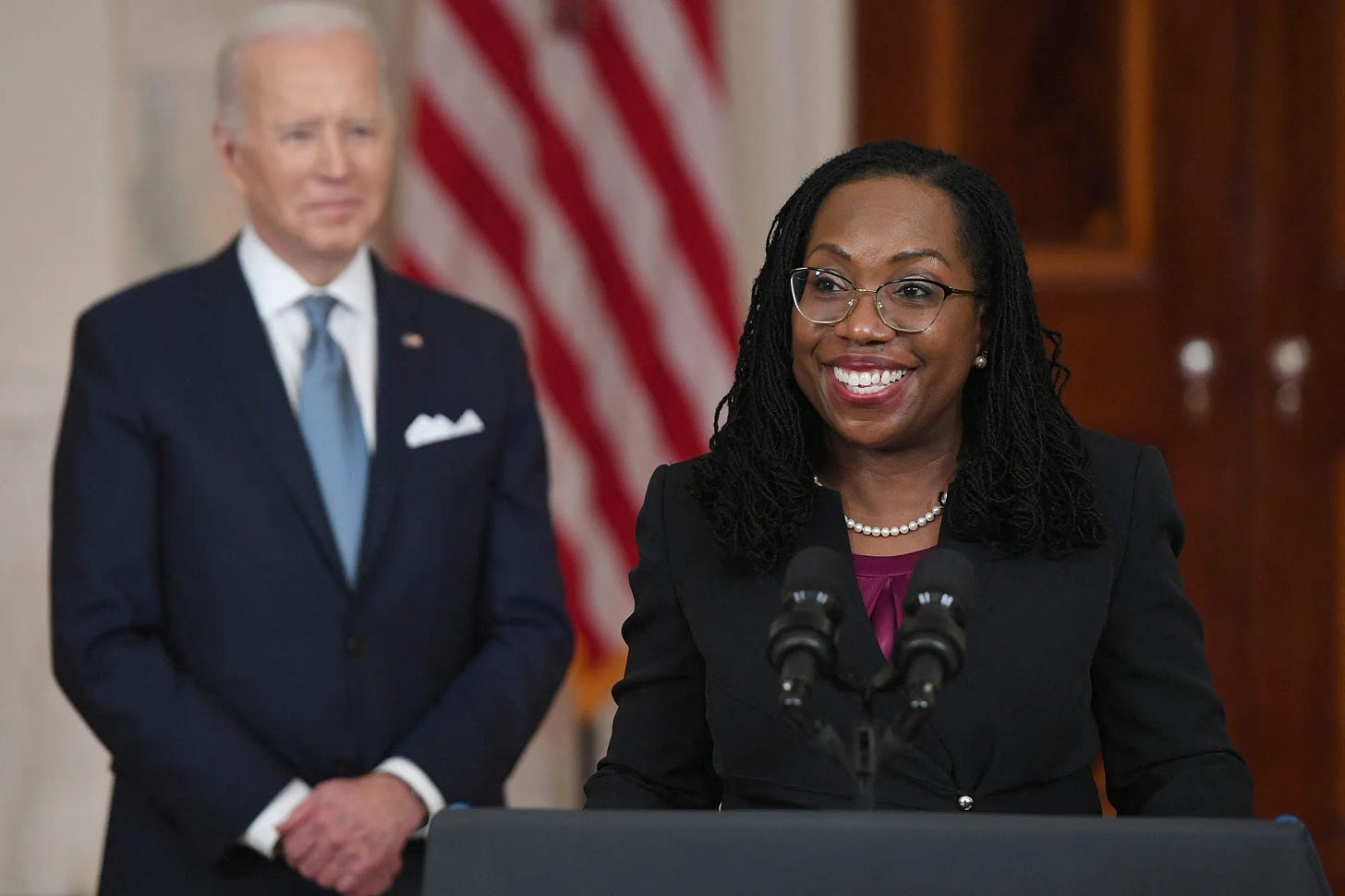
Before President Biden’s SCOTUS nomination of Ketanji Brown Jackson at the end of February, I mentioned in a hot take that,
“To be sure, I have no problem with a black woman as a Supreme Court Justice (nor am I saying a black woman cannot be qualified), so long as she is the most qualified for Constitutional reasons, not ethnic or gender ones. It’s one thing to vote out a Vice-President ‘elected’ for politically correct reasons after four years, but a Supreme Court appointment is for life.”
Here’s a comment from a reader questioning the logic of my statement:
“With President Biden having made his SCOTUS nomination, this edition actually seems timely again. Perhaps not surprisingly, I'm actually okay with purposely trying to break the mold on who should make up the Court. Of the 115 justices so far, only 6 have not been white males. Out of the three picks in the previous administration, we had white male, white male, and going all the way out on a limb, white female. I don't think you sit around and hope that there will be more diversity someday; you actually have to work for it.
I know you're a big logic guy and will often call me on logical inaccuracies in my statements, so I'd like to toss something out here as my two cents. I think your statement that it is more important to have the most qualified person instead of trying for representation is based on a faulty premise. That is, the notion that out of a country of approximately 330 million people, there is only one most qualified person to be on the Court.
I'm not a legal scholar, but I'm willing to bet that every single time an opening pops up, there are probably at least a dozen, maybe two dozen people or even more in the American justice system who would all be pretty much equally qualified to be a Supreme Court justice. And what one person's definition of qualified is might be different than another person's, as is demonstrated by the short list that pops up depending if it’s a Democrat or a Republican in the Oval.
And even within that, how many times do administrations put forth the person that they truly believe is the absolute right person for the job, or do they put forth the person they like well enough who they feel they can actually get confirmed in a Senate hearing? So I think the notion that there wouldn't be at least one Black woman somewhere who wouldn't be every bit as qualified as anyone else to serve seems perhaps just a little short-sighted.”
It seems my choice of words betrayed the crux of my point, so let me try to clear it up now. I didn’t mean to imply that we had to find the one, absolute best candidate in all the land (President Biden already severely limited that pool by eliminating anyone who wasn’t black and female); my point was that I hoped that Biden’s pick would be most qualified (read: defined) by being tops in her class as a Constitutionalist.
Specifically concerning Ketanji Brown Jackson, I’ve not read much on her, other than that there’s some concern as to a possible “thin” judicial record, which is problematic for fans who want to champion her beyond just her ethnicity and sex, as well as for foes who want to prove the point that ethnicity and sex were her only credentials. What all this means for her confirmation I have no idea; all I care about is that she views and approaches her role as sitting under the Constitution rather than over it.
Major League Baseball Hall of Fame Voting
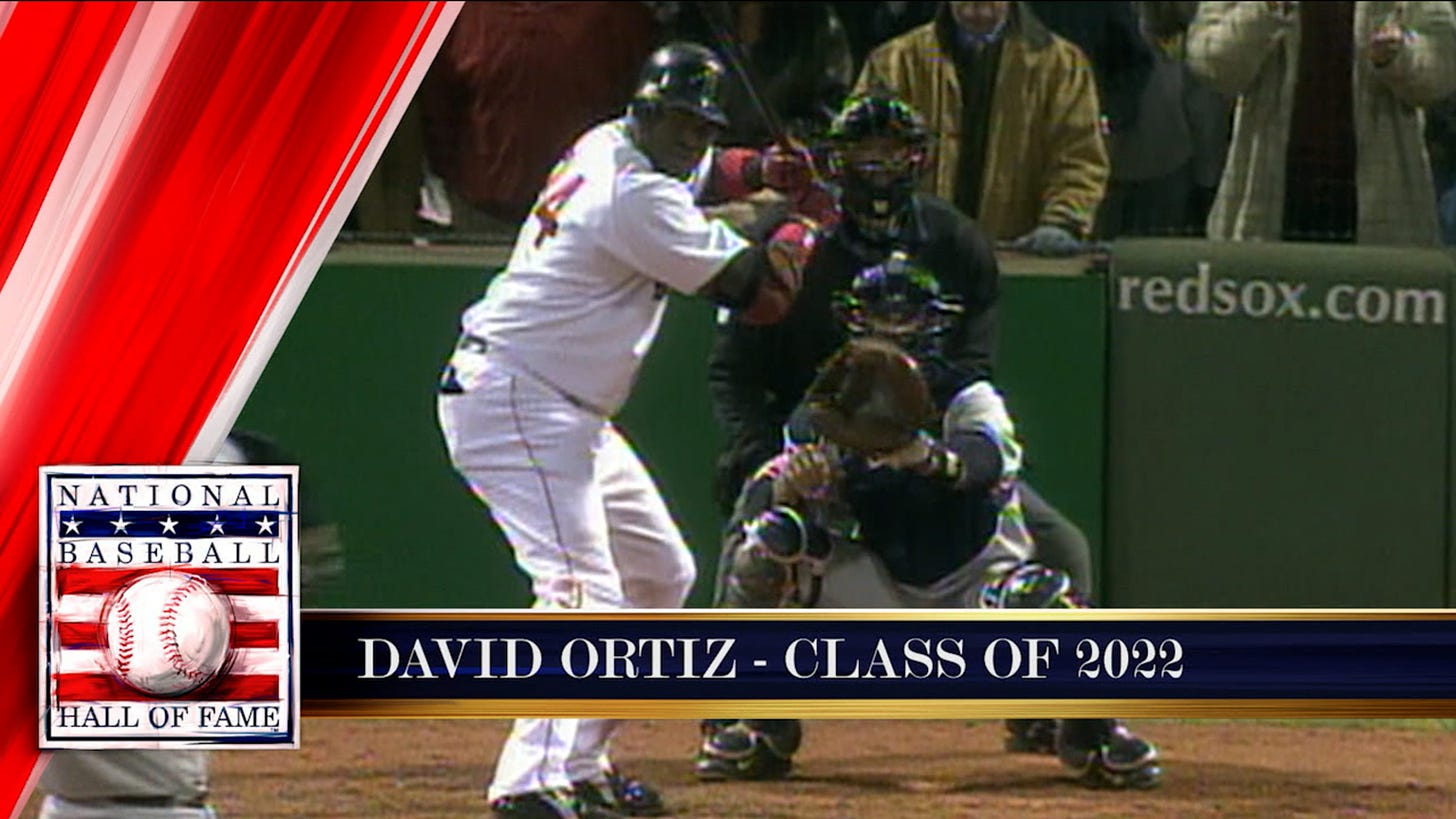
In the same newsletter, I made the following comment about Major League Baseball’s recent Hall of Fame voting:
“[Barry] Bonds and [Roger] Clemens, as well as former Cubs player Sammy Sosa—all three of whom, along with [Mark] McGwire and others, used PEDs in the 1990s—join the likes of Pete Rose who will never make it into the Hall. (For the non-fans among us, Rose was banned from baseball in 1989 for betting on his Cincinnati Reds team when he was manager.) And I don’t have a problem with that.”
This time around, a reader actually agreed with me. He writes:
“I think you and I are both purists when it comes to baseball. I'll be sad to see a universal DH, and I'm torn about the recent expansion of the playoffs. And yes, I was quite fine with none of the top name steroid guys making it in. And that even includes Sosa, who I admit cheering on when he was a Cub and helping to lead us within one game of the Series in 2003. I feel that as long as Pete Rose can't get in, than neither should those guys.
I know there has always been this huge taboo about having any gambling connections with baseball (probably stemming most notably from the 1919 Black Sox), but sports gambling is so ubiquitous these days. Plus, no one has ever demonstrated any proof (to my knowledge) that any of Rose's wagers had any impact whatsoever on the final score of a game. However, don't try to tell me there weren't several times that Bonds came up with the Giants down in the late innings and one swing from him changed the outcome.
So while I know there are several times that you and I see things differently, when it comes to baseball, we are in sync—lock, stock, and barrel.”
As I alluded in my initial post, the biggest pushback I usually get on my position is that I’m too much of a naïve purist on this topic. The argument usually goes that, “Everybody cheats a little,” or “We’re evaluating baseball players, not saints.” I suppose my thinking follows that of an acquaintance who explains things this way:
“I draw a distinction between the cheating that is an excess of gamesmanship, and cheating that would tend to alter the character of the game and the careers of players themselves, even to the point of poisoning their bodies.”
Here I stand; I can do no other (though if MLB—the owners and, yes, the players—can’t get their collective rears in gears to salvage the upcoming season, I may be done with baseball altogether; I already can’t watch a game without a subscription).
Buy Your Tickets Now for Orpheus Ascending
Opens in two weeks! Bozeman peeps, I would really love for you to see this show. Five performances, but seating is limited. Visit the website for details and buy tickets now!
Fresh & Random Linkage
“Endurance: Explorer Shackleton’s Ship Found After a Century” - A well-preserved relic from a journey made by some of the toughest men on the planet.
“The Delightful History of Fruit Stickers, the World’s Tiniest Canvases for Graphic Design” - If you’ve ever done graphic design, you’ll appreciate this.
“It Seems Like a Lot of You Are Cheating at Wordle: Study” - Come on, people.
Ever since VIII, I swore I’d be done after IX. Then Disney's acquisition and serialization sealed the deal. Goodbye, old friend. May the Force be with you.
Until next time.






